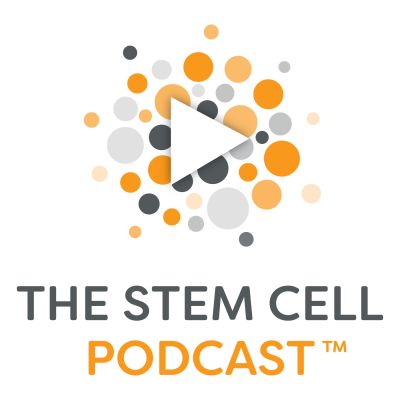Join Drs. Daylon James and Arun Sharma as they discuss the latest stem cell research, and interview some of the brightest minds in the field.
https://stemcellpodcast.com
Ep. 42: “Neurogenesis” Featuring Dr. Fred Gage
Guest:
Neuroscientist and stem cell pioneer Dr. Fred "Rusty" Gage, a professor at the Salk Institute where he discusses past, present, and future work of stem cells and neurogenesis.
Resources and Links
Too Much of a Bad Thing Can Be Good in Brain Tumors – DNA mutations can cause cancer but in some cases, more mutations may mean a better prognosis for patients like the one subtype of the most malignant brain tumor, called glioblastoma, or GBM.
Turbo-charging Hormone May Help Regrow the Heart, Animal Study Shows – Researchers at the Victor Chang Cardiac Research Institute discovered how to stimulate muscle regrowth in the heart of a mouse, which could be particularly important in looking at new treatments for those who suffer future heart attacks.
Aluminum Battery from Stanford Offers Safe Alternative to Conventional Batteries – Stanford University scientists have invented the first high-performance aluminum battery that's fast-charging, long-lasting and inexpensive that could replace many of the lithium-ion and alkaline batteries in wide use today.
Blackpoll Warblers Migrate Thousands of Miles across Atlantic Ocean, Scientists Find – A team of ornithologists led by William DeLuca of the University of Massachusetts, Amherst, reports the first direct evidence that the blackpoll warbler (Setophaga striata), relatively small songbirds, completes an autumn trans-Atlantic migration ranging from 2,270 to 2,770 km (1,410 to 1,721 miles) and requiring two to three days of non-stop flight.
Africa: Biodiversity Damage Mapped By Global Land-Use Study – Study concluded that, if human impacts continue to grow as they have been, future losses in biodiversity will be concentrated in biodiverse but economically poor countries.
Blown-Up Brains Reveal Nanoscale Details – A study showed that material used in diaper absorbant can make brain tissue bigger and enable ordinary microscopes to resolve features down to 60 nanometers; this technique is called expansion microscopy.
Repurposed Experimental Cancer Drug Restores Brain Function in Mouse Models of Alzheimer’s Disease – Scientists have found that saracatinib, a compound originally developed as a cancer therapy potentially could be used to treat Alzheimer’s disease.
Stemming Genetic Changes in Cultured Cells – Researchers have found that the fewest genetic changes arise in embryonic stem cells (ESCs) that are grown on a substrate layer of "feeder cells"—non-dividing cells that provide nutrients and help ESCs attach to their culture dishes—and passaged mechanically, that is, broken into clumps before being moved into new vessels.
Study: Saccharin Shows Promise as Cancer Inhibitor – The artificial sweetener saccharin shows considerable promise for its ability to inhibit an enzyme upregulated in many cancers, helping tumor cells survive and metastasize.
Researchers May Have Solved Origin-of-Life Conundrum – Chemists report that a pair of simple compounds called acetylene and formaldehyde, which would have been abundant on early Earth, can give rise to a network of simple reactions that produce the three major classes of biomolecules—nucleic acids, amino acids, and lipids—needed for the earliest form of life to get its start.
Malaria Parasite Attracts Mosquitoes with Perfume – This article reveals that Plasmodium—the malaria parasite manufactures alluring odor molecules, called terpenes using a chloroplast-like organelle that attract mosquitoes.
Why Is the Scientific World Abuzz about an Unpublished Paper? Because It Could Permanently Change Human DNA – Scientists around the world are anticipating the results of a Chinese study that would mark the first time DNA in a human embryo has been modified in a way that would carry into future generations.
Meat Grown in a Laboratory Soon to Become Commercially Viable, Says Scientist – Meat grown in a laboratory will become commercially viable in the next decade accor...
